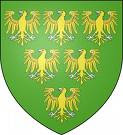I'm afraid I've been on holiday for a good part of August so haven't done much blogging. And today's post is just a short one. Following on from my praise of Leanda de Lisle's article defending Margaret Beaufort, I read another interesting article on Susan Higginbotham's blog History Refreshed, in which she discusses the 'slut shaming' . Hadn't heard the term before, but I'll quote Susan's context for using it in her post on Catherine of Valois's reputation -
I find this willingness to stain the reputation of historical women on such flimsy evidence disheartening, particularly when the writer doing this academic version of “slut shaming” is an accredited historian. I find it even more disheartening when the author is someone dedicated to restoring the good name of another historical figure, Richard III.
I completely agree with Susan. Many blogs have commented on the BBC, erm, 'drama' 'The White Queen', my favourite being the interpretation being on A Neville Feast blog. Plus, newspapers have had a field day pointing out metal handrails on stairs, drainpipes in full view, zips on costumes etc. As well as showing the drama, the BBC showed 2 documentaries hosted by Philippa Gregory called 'The Real White Queen and her rivals'. Except it wasn't 'the real' story of these women - just an attempt to pass Gregory's fiction off as fact. And what made it worse was the inclusion of several notable historians giving their views. They didn't comment on controversial areas of Gregory's fiction, but to me, their inclusion seemed to be used by the BBC to legitimise Gregory's views. And what made me particularly annoyed was the 'discussion' on Elizabeth of York and her 'affair' with her uncle, Richard III. Gregory maintains that Henry VII waited 5 months before marrying Elizabeth of York to ensure she was not pregnant by her uncle Richard - a case of 'slut shaming'. The obvious reason Henry VII waited was because he didn't want it to look as though he owed his crown to Elizabeth of York. He didn't want them to be seen as 'joint sovereigns'. Of course he hoped the marriage would reconcile the Houses of York and Lancaster - but there was no doubt in his mind that he was king by right, and his claim had nothing to do with his wife. Makes much more sense than waiting to see if Elizabeth was pregnant by Uncle Richard!
Henry VII and Elizabeth of York had one of the happiest royal marriages. They did not marry for love, but there seems to have been genuine growing affection between them throughout their marriage, and Henry was devastated when she died. He could - and probably should - have re-married, and although he searched for another wife, he never married again.
Onto another Queen - this time, Mary, Queen of Scots. I have just visited Edinburgh, and the National Museum of Scotland, has a superb exhibition on Mary. here's the blurb from their website -
Created especially for the National Museum of Scotland and showing only in Edinburgh, the exhibition provides a once-in-a-lifetime opportunity to discover much that has been written and speculated about Mary, one of the most charismatic monarchs of all time. Taking a fresh, innovative approach, using jewels, textiles, furniture, documents and portraits, Mary’s dramatic story and this fascinating period in Scottish history is explored in detail.
By drawing together rare objects intimately connected with Mary Stewart, as well as key loans from public and private collections, the exhibition features an array of treasures never before seen together, alongside new research.
I had only a short time in Edinburgh - but it still took me 2 hours to see the exhibition. It's well worth a visit, and will be there until November. It's the artefacts that make the exhibition for me. Who knows when such a collection will be shown again? The exhibition is balanced and examines the evidence available to try unravel the complications of Mary's life.
1 day ago


